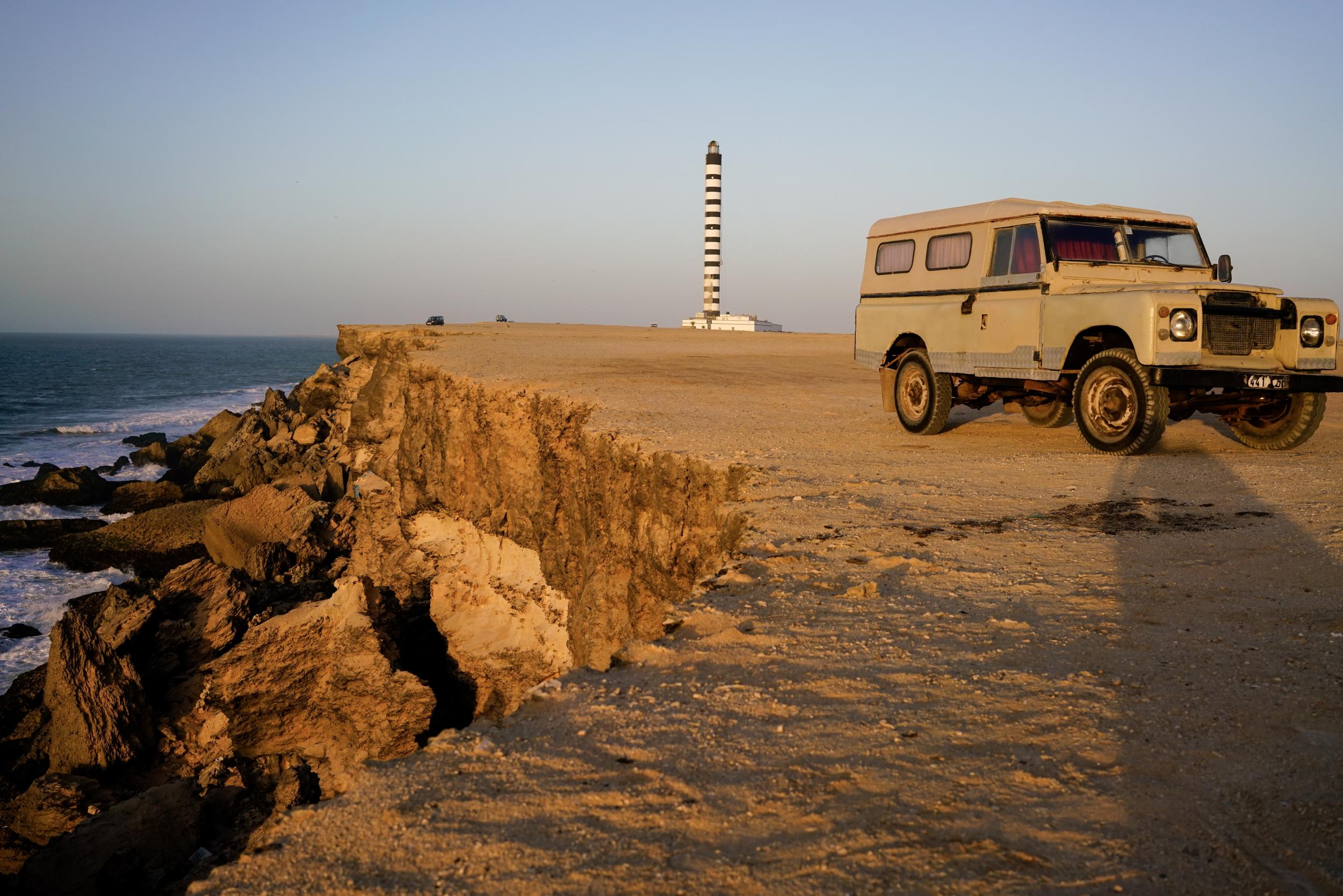Trailblazing desert bitcoin project raises fresh questions over Morocco’s role in Western Sahara
A massive new wind farm could help solve digital currencies’ crippling energy needs, but critics say initiative in disputed Western Sahara comes at high political cost

For all the revolutionary potential of bitcoin and other cryptocurrencies, the digital inventions are extremely bad news for the environment.
At the end of 2017, when bitcoin mania was at its peak, the surge in processing power needed by computers for mining and transactions upped its estimated annual energy consumption to a staggering 30 terawatt hours – roughly the same energy use as the entire country of Morocco.
A new blockchain company, Soluna Technologies, is building a huge 900-megawatt wind farm in Dakhla in the Sahara to power its computing needs, touted as a potential model for powering blockchain computing with renewable sources in the future.

“We at Soluna have a goal, to bring abundant, efficient green energy online at utility scale,” CEO John Belizaire told The Independent.
“Dakhla is one of the most promising regions for renewable energy generation in the world – and thus the perfect location for our flagship site.”
The farm will take up 36,000 acres of desert classified as a high quality wind site and will also help the country of Morocco meet its goal of producing 52 per cent of its electricity from green sources by 2030.
Activists, however, have taken issue with the project’s claim that the Dakhla site is in southern Morocco – pointing out the area actually lies in the disputed territory of Western Sahara.
The initiative raises new questions about the legality of Moroccan administered infrastructure projects in the area, Sara Eyckmans, coordinator for Western Sahara Resource Watch (WSRW), said in a statement.
“[The project] is situated on land under foreign military occupation,” she said.
“Any agreement that [parent private equity firm] Brookstone has signed with the Moroccan government for that particular area is thus null and void.”
Parts of Western Sahara, a former Spanish colony, were annexed by neighbouring Morocco in 1975 in a move not recognised by the international community.
The mostly desert territory is home to just 500,000 people and has been subject to physical and political clashes between Rabat and the Polisario independence movement ever since.
Morocco, which imports more than 90 per cent of its energy requirements and is home to a youthful and growing population, is in desperate need of diversifying its energy sources. High electricity and other utility prices have driven protesters to the streets en masse several times since major Arab Spring protests in 2011.
The Rabat authorities have built several wind energy projects in Western Sahara so far, although several UN and European Court of Justice rulings have said that Sahrawis should have full control of development of the area’s natural resources.
WSRW has urged Brookstone and Soluna Technologies to support the UN peace process by cancelling the Dakhla project. Its backers told Forbes they are aware of the “political sensitivities of the region” and that the investments respect Western Sahara’s international legal status.
The Soluna project brings benefits for local Sahrawis as well as Rabat, Mr Belizaire said.

It will create more than 1,000 high tech jobs in Dakhla and the company also plans to reinvest one per cent of the site’s revenue into local educational programmes, creating “a community of trained resources in blockchain computing and launch a centre of excellence in the region”, he added.
Construction of the new wind farm and computing centre begins next year and should be connected to Morocco’s national grid in the next five years.
Soluna is investing $100m (£79m) into the site’s initial phase, which it hopes will generate 36 megawatts of electricity, and will then seek additional input from private equity and large institutional investors.
Moroccan officials did not immediately respond to requests for comment for this article.
Join our commenting forum
Join thought-provoking conversations, follow other Independent readers and see their replies
Comments
Bookmark popover
Removed from bookmarks